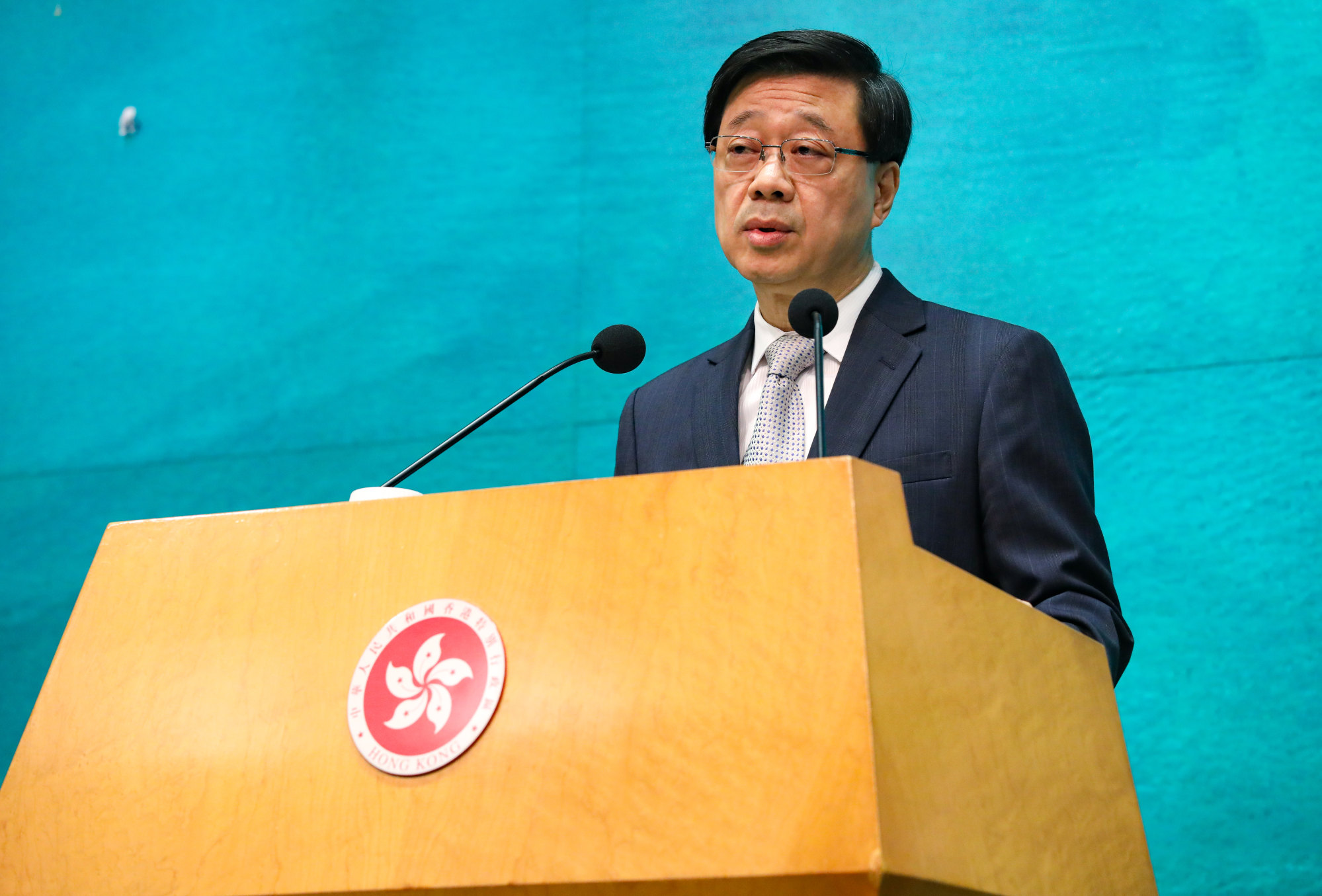Hong Kong’s new district councils will be more ‘constructive’, members to be monitored for performance, city leader John Lee says
“We have already passed the election process, it is important we focus our attention on the outcome of the election, and the outcome will mean a constructive district council rather than what used to be a destructive one.”
Hong Kong district council election: can the ‘patriotic’ winners deliver?
Under the district council revamp, only 88 out of 470 seats are directly elected by the public. The city leader chooses 179 others, local committees decide another 176 and rural leaders will hold the remaining 27 seats.
The city leader said the revamped municipal-level bodies would focus on livelihood issues and district matters, and members would be “readily available” to help residents when they had problems.
He added that the performance of new councillors would be monitored, unlike their counterparts elected in 2019 who Lee said had pursued their own political interests, sabotaged the governance system and gone against local and central authorities.
But he stopped short of saying when further details would be announced for the monitoring system, under which district councillors would be punished if they were considered to be performing poorly.

The Sunday poll saw 1,193,193 people – or 27.54 per cent of registered electors – vote in the first district council election since the municipal-level bodies were overhauled to align them with Beijing’s principle that only “patriots” should be in charge.
The turnout rate is a significant drop from the 71.23 per cent recorded in the last district council election in 2019 held at the height of the anti-government protests, when the opposition bloc scored a landslide victory.
It is also the lowest rate since the city’s return to Chinese rule in 1997, with the previous low standing at 35.8 per cent in 1999.
The low participation rate followed a massive government promotional blitz to mobilise residents to vote, with authorities rolling out banners, television advertisements, social media clips and a “District Council Election Fun Day” held one day before Hongkongers headed to the ballot boxes.
Lee said the government did what it needed to do in promoting the new district council election system, adding that authorities had to tell residents about the changes between the new and old formats.
He said he wanted Hongkongers to know the difference between representatives who would take care of the people’s interests versus those focusing on their own political goals, with the new system also producing members from increasingly varied backgrounds who would be more dedicated to serving residents.
“This is important because we have now turned over a new leaf, so this is going to be what will be good for Hong Kong, and that message has to be loud and clear and received by the people of Hong Kong,” he said.
Hong Kong’s main parties big winners in ‘patriots-only’ district council poll
According to the city’s leader, the 179 appointed district councillors come from different sectors and also include representatives from ethnic minority groups. Their median age is 47, with the youngest being 23 years old.
The election drew criticism from some Western countries, prompting Beijing’s foreign affairs arm in Hong Kong to hit back on Tuesday morning.
A spokesman for the commissioner’s office of China’s foreign ministry in Hong Kong said the days when external forces recklessly intervened in city affairs by supporting political proxies were gone and would never return.
Hong Kong’s first ‘patriots-only’ district poll is ‘real, functioning democracy’
The office said the councils were non-political district organisations, telling foreign politicians to immediately cease actions that disrupted the city and country, or they would risk a response from the Chinese side.
The Foreign, Commonwealth and Development Office of the United Kingdom on Monday criticised the poll, saying many voices were excluded from taking part.
Nabila Massrali, the European Union’s spokeswoman for foreign affairs, said the drastically reduced number of directly elected seats had severely weakened Hongkongers’ ability to choose their representatives.